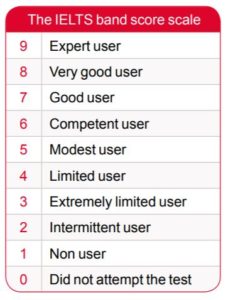Transfer Policy:
You need to contact the test center directly by email at [email protected] and provide full information as to why you qualify for special consideration, with supporting evidence. Your test center will assess your application and will respond to you within seven working days of receiving your full application in writing, no requests will be accepted through the phone.
If your test center approves your application, you will receive a refund or transfer, subject to an administrative fee of $80.
Please be aware that refunds can take four to six weeks to process.
Candidates must lodge an application for refund/transfer no later than 5 business days after the test date. Candidates must complete the following form: Request for Refund/Test Date Transfer/Module Change Form and attach the appropriate documentation and/or evidence. Acceptable documents may include a medical certificate from a qualified medical practitioner, a death certificate, or a police report. Statutory declarations and certificates signed by family members are not acceptable.
Page 2 of the Request for Refund/ Test Date Transfer/Module Change Form must be filled out by the candidate. If the reason for cancellation/transfer is medical, page 3 must be filled out by a medical practitioner. The completed form(s), along with supporting documentation and emailed to [email protected].
The Administrator will advise the candidate within one week of lodging the application whether or not their request has been approved.
- Request for IELTS Test Day Transfer must be made more than 7 days prior to the elected test date (candidates will be charged $80 administrative fee). Transfer dates will depend on availability.
- Test takers who wish to transfer less than 7 days prior to the elected test date will be treated as a cancellation and will receive NO refund, and must re-apply. Unless an exceptional circumstances applies.
- Transfer dates will depend on availability.
To find out more details, please contact us at [email protected] / 1 403 470 4597
Special Consideration Owing to Exceptional Circumstances
On rare occasions, there may be instances where you are unable to attend your test or are disadvantaged on test day owing to illness, injury, or another exceptional event outside your control. In these cases, you may make an application to the test center for special consideration due to exceptional circumstances. This will allow you to carry over your test fee to a later assessment opportunity or, in some cases, apply for a refund. Special consideration includes instances such as:
- A traumatic experience
- Domestic crisis
- Unavoidable legal or military obligation
- Serious illness – e.g. hospital admission or serious injury (Does not include minor illness such as a mild cold)
- Bereavement, or other forms of significant hardship.
- Civil unrest, extreme weather




